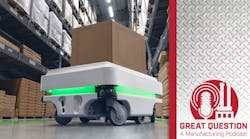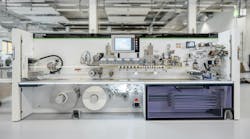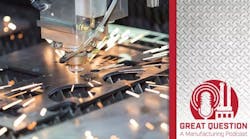The future of manufacturing is a dark place, shrouded in the unknown. As wise Master Yoda once said, "Difficult to see. Always in motion is the future."
As in that galaxy far, far away, there are so many variables with which to consider: The skills gap, the aging workforce, trade disputes, complicated and costly new technologies. For executives and other leaders trying to make decisions based on what's right and not due to fear, thinking about it can be downright scary. Or at least give you a bit of heartburn.
World Economic Forum research found that seven out of 10 manufacturers fail in pushing initiatives in big data analytics, A.I. and additive manufacturing past the pilot phase. A recent IndustryWeek survey also indicated manufacturers are having trouble finding real ways to join the the Fourth Industrial Revolution.
But there is hope all around, the forum asserts. They scoured the planet and after vetting 1,000 manufacturers for the past year, selected nine "lighthouses" that appear to be weathering the storm of change with a solid Industry 4.0 strategy. They announced the nine smart factories in September. Five are in Europe, three in China, and one in the United States. These beacons should serve as a good model for how to successfully implement Industrial Internet of Things solutions that provide tangible financial and operational impact.
"These pioneers have created factories that have 20 to 50% higher performance and create a competitive edge," says Enno de Boer, Partner and Global Head of Manufacturing at McKinsey & Company, which partnered with the Forum for the year-long project. "They have agile teams with domain, analytics, IoT and software development expertise that are rapidly innovating on the shop floor. They have deployed a common data/IoT platform and have up to 15 use cases in action. They are thinking scale, acting agile and resetting the benchmark."
All agreed to open their doors share their knowledge.
"The [Internet of Things] is expected to deliver productivity gains amounting to more than $3.7 trillion," said Helena Leurent, Head of the Shaping the Future of Production System Initiative and Member of the Executive Committee at the World Economic Forum. "But we are still at the beginning of the journey."
Click the slideshow to learn more about each of these lighthouses and how they are making the future a little less dim.









